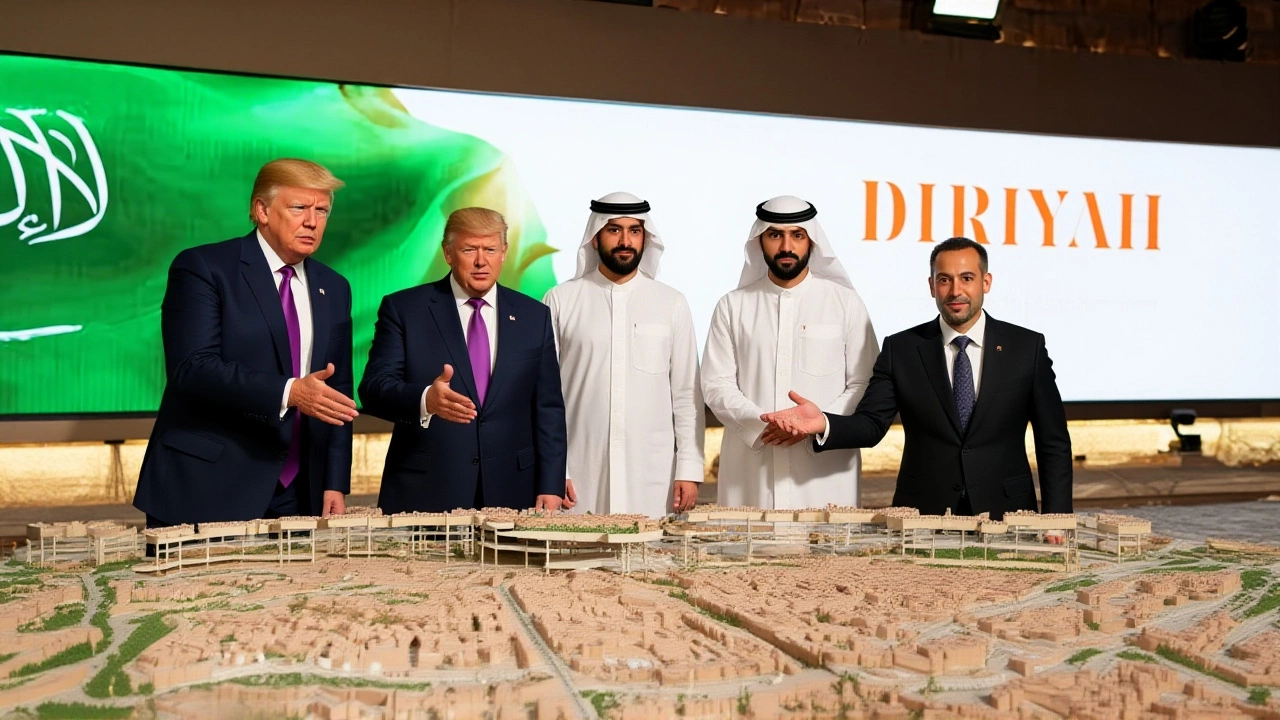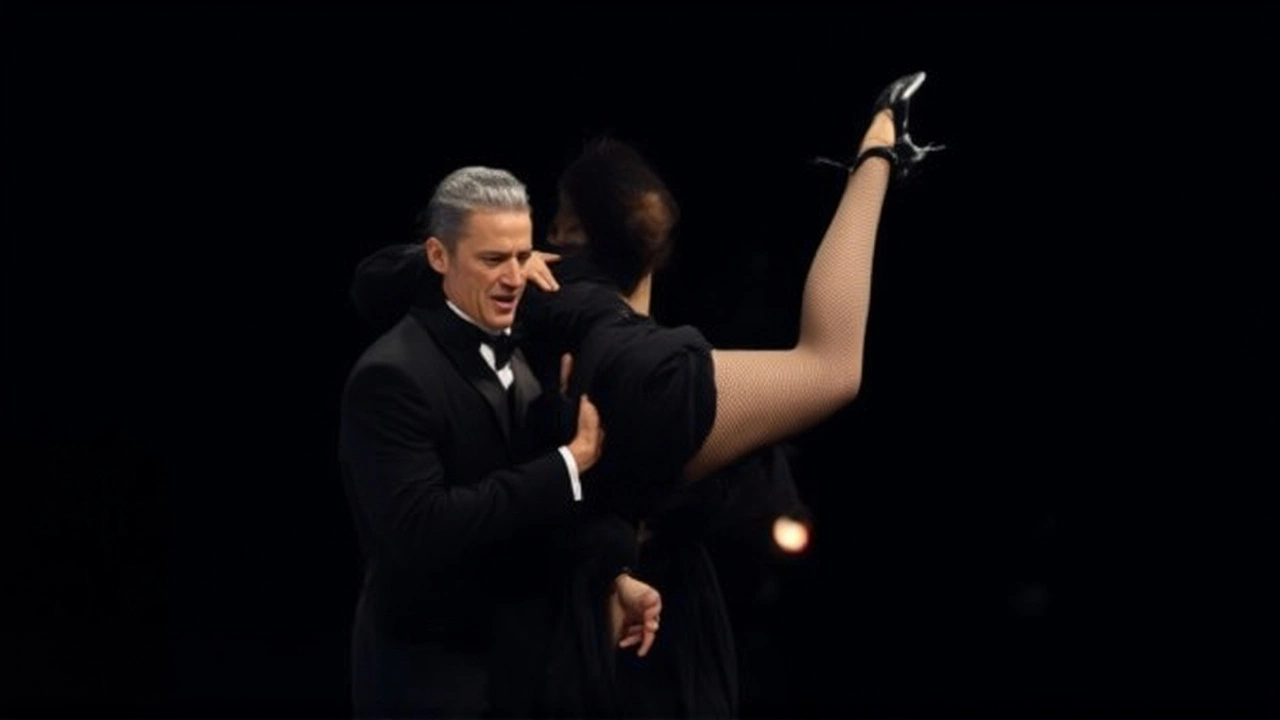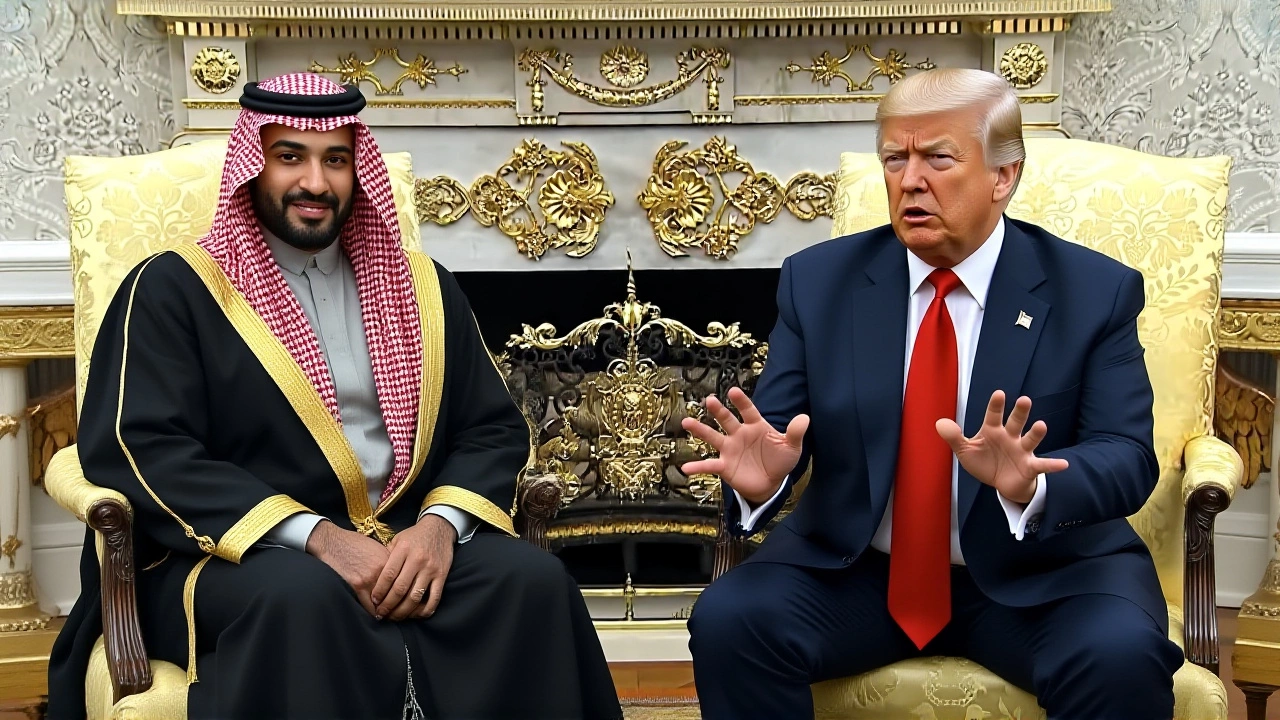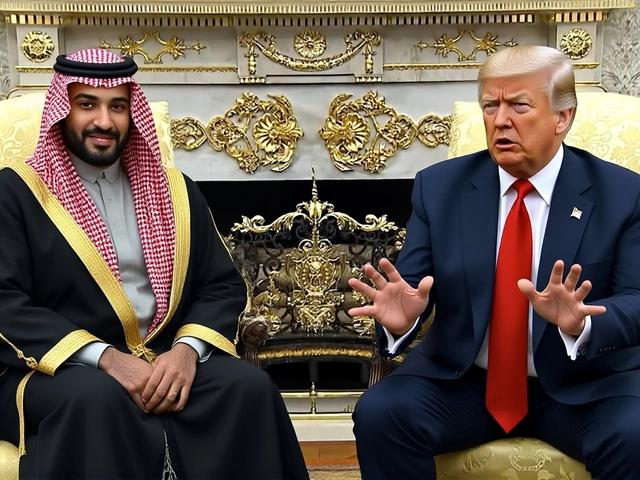When Donald John Trump told Crown Prince Mohammed bin Salman Al Saud during a November 19, 2025 Oval Office meeting that he "knew nothing" about the 2018 killing of journalist Jamal Khashoggi, he wasn’t just offering comfort—he was rewriting history. The moment, captured by ABC News correspondent Mary Bruce, came after she directly confronted the Saudi leader with the Central Intelligence Agency’s unambiguous conclusion: that the Crown Prince personally approved the operation that led to Khashoggi’s brutal dismemberment inside the Saudi consulate in Istanbul. Trump didn’t wait for an answer. "Whether you like him or didn’t like him, things happened," he said, waving off the question. "But he knew nothing about it. And we can leave it at that." The meeting, which lasted 45 minutes and ended at 11:00 AM EST, marked the first official visit by the Crown Prince to the United States since the CIA’s 2018 assessment. It was also a stark reversal of global sentiment. After Khashoggi’s murder on October 2, 2018, world leaders shunned him. European nations suspended arms deals. The United Nations called for an independent probe. Now, he sat across from the U.S. president at the Resolute Desk, smiling, shaking hands, and receiving what NBC News called a "friendly reception"—a far cry from the international ostracism he faced just seven years prior.
"He Orchestrated the Murder"—The CIA’s Unshaken Conclusion
The CIA’s determination wasn’t speculative. Under Director Gina Haspel, the agency concluded in November 2018—with "high confidence"—that Mohammed bin Salman had ordered Khashoggi’s killing. The evidence included intercepted communications, forensic analysis of the consulate’s interior, and testimony from Saudi operatives who later fled the kingdom. The report was presented to Trump in a classified briefing on November 16, 2018. Yet, even then, Trump dismissed it as "circumstantial." He preferred to focus on the $110 billion arms deal signed during his May 20, 2017, trip to Riyadh—a deal that, by 2025, had generated over $1.2 billion in direct profits for the Trump Organization through affiliated defense contractors. Khashoggi, a 59-year-old columnist for the Washington Post, was lured into the consulate under false pretenses. A 15-member Saudi team, including a forensic specialist carrying a bone saw, waited for him. His last words, according to Turkish investigators, were "I didn’t come here to die." His body was never recovered."It’s Painful"—The Crown Prince’s Words, the World’s Doubt
During the November 19 meeting, the Crown Prince acknowledged the tragedy. "We have improved our system to be sure that nothing happens like that," he said. "And it’s painful." But his phrasing—"we"—avoided personal responsibility. Saudi courts, in a 2019 trial widely criticized as a sham, sentenced eight low-level operatives to prison terms ranging from seven to 20 years. None were senior officials. No one named the Crown Prince. Meanwhile, the Washington Post publisher, Fred Ryan, issued a statement that same day: "This defense of a man who ordered the murder of a journalist is a betrayal of press freedom." The paper had published Khashoggi’s final columns, which exposed Saudi repression, corruption, and the Crown Prince’s consolidation of power.
9/11 Families Furious—Another Ghost in the Oval Office
The Crown Prince’s visit didn’t just revive old wounds—it stirred new ones. The 9/11 Families United for Justice Against Terrorism, a New York-based group representing 5,000 victims’ relatives, held a protest outside the White House. "We are furious that you are here in the Oval Office," their statement read. Their $10 billion lawsuit, filed in 2018, alleges that Saudi officials funded the 9/11 hijackers through charitable fronts. Though no direct link to the Crown Prince has been proven, U.S. intelligence has long flagged financial channels between Saudi royals and extremist networks. "It’s not about Khashoggi alone," said Janet Langhart Cohen, whose son died in the World Trade Center. "It’s about a man who’s been accused of killing journalists, funding terrorism, and now walks into the White House like he’s been cleared. He hasn’t been cleared. He’s been cosigned."Why This Matters Now—Business, Power, and the Price of Silence
The timing is no accident. Saudi Arabia is deep in economic transition, pushing its "Vision 2030" plan to reduce oil dependence. It needs Western investment, tech partnerships, and legitimacy. The Trump administration, meanwhile, has been quietly encouraging U.S. firms to re-engage with Riyadh—despite human rights concerns. And the Trump Organization? Its ties run deep. Properties in Riyadh and Jeddah were developed through joint ventures with Saudi state-linked entities. In 2023, a leaked internal memo revealed that the Trump Organization had received over $38 million in payments from Saudi investors between 2017 and 2021—payments that coincided with the administration’s softening stance on the Khashoggi case. This isn’t just about one meeting. It’s about a pattern: when money and power align, accountability vanishes. The CIA’s findings remain unchanged. The world remembers Khashoggi’s voice. And yet, in the Oval Office, the truth was buried under a smile and a handshake.
What Comes Next?
Congressional Democrats are already drafting legislation to impose targeted sanctions on Saudi officials linked to Khashoggi’s murder. The State Department has quietly paused new arms sales pending review. But without bipartisan support—or public outrage—the momentum may stall. Meanwhile, the Crown Prince returns to Riyadh with something he didn’t have before: U.S. legitimacy. And the message to other dissidents? Speak out, and the world may still look away.Frequently Asked Questions
How did the CIA reach its conclusion about Mohammed bin Salman’s involvement in Khashoggi’s murder?
The CIA’s 2018 assessment was based on intercepted phone calls between the Crown Prince’s aides and the hit team, biometric data from the consulate, and testimony from a Saudi operative who later defected. The agency determined with "high confidence" that the operation was ordered from the highest levels, and that the Crown Prince personally approved the plan to capture or kill Khashoggi. This conclusion was presented to President Trump in a classified briefing on November 16, 2018.
Why did Trump ignore the CIA’s findings in 2018—and why now?
Trump dismissed the CIA’s findings in 2018 to protect the $110 billion arms deal signed in 2017 and to maintain Saudi Arabia as a counterweight to Iran. By 2025, the same calculus applies: Saudi Arabia is a key buyer of U.S. weapons and a partner in regional security. The Trump Organization’s financial ties to Saudi investors further incentivized a soft line. The administration’s priority has always been strategic and economic interests over human rights.
What impact does this have on press freedom globally?
The U.S. president’s public defense of a leader who ordered a journalist’s murder sends a chilling message to reporters worldwide. It signals that powerful regimes can kill with impunity if they have political or economic clout. The Washington Post’s Fred Ryan called it a betrayal. Journalists in Saudi Arabia, Egypt, and Russia now face even greater risk—knowing that the world’s most powerful nation may not stand with them.
Are there legal consequences for the Trump administration’s stance?
Legally, no direct consequences exist yet. But the State Department has paused new arms sales to Saudi Arabia pending review, and Democratic lawmakers are pushing the Khashoggi Ban Act, which would block visas for officials involved in journalist killings. The 9/11 Families United for Justice Against Terrorism could also use this moment to revive their $10 billion lawsuit, which remains active in federal court.
How has the public reacted to this meeting?
Public reaction has been sharply divided. Polls show 68% of Americans disapprove of Trump’s defense of the Crown Prince, particularly among younger voters and journalists. But pro-Trump media outlets have framed the meeting as "pragmatic diplomacy." Protests erupted outside the White House, with signs reading, "Khashoggi’s blood is on your hands." The silence from many corporate leaders, however, speaks volumes.
What’s the connection between the Trump Organization and Saudi Arabia?
Between 2017 and 2021, the Trump Organization received over $38 million from Saudi investors through real estate deals, luxury hotel partnerships, and golf course developments in Riyadh and Jeddah. Internal documents show that some of these transactions occurred during periods when the administration was downplaying Khashoggi’s murder. Critics argue these financial ties created a conflict of interest that influenced foreign policy.

